A ‘factual feminist’ critiques modern campus activism and feminism
February 17, 2017
An American author, former philosophy professor, and a resident scholar at the conservative think tank American Enterprise Institute (AEI), Christina Hoff Sommers also considers herself a “factual feminist” who actively speaks on college campuses nationwide regarding her unique perspective on political activism, free speech, and “campus feminism.” She made her most recent appearance at the University on Feb. 9 when she was invited to speak by the Bucknell University Conservatives Club (BUCC).
Sommers is best known for her public critique of contemporary feminism in her books, including “Who Stole Feminism?” (1994) and “The War Against Boys” (2000). Her writing has also been featured in a variety of media outlets, including The New York Times, Time, and The Atlantic.
Sommers was introduced by Tom Ciccotta ’17, whose remarks mainly focused on an event that transpired in February 2016 when Milo Yiannopoulos was brought by BUCC to speak on campus. This controversy recently resurfaced after Professor of Economics Marcellus Andrews identified Ciccotta as needing to take responsibility for bringing a provocative conservative speaker to campus.
Both Andrews and Ciccotta could not be reached for comment.
Sommers’ position and writing on equality feminism has been characterized by many as having a classical-liberal or libertarian feminist perspective; she argues that modern feminist theory often contains an “irrational hostility to men” and possesses an “inability to take seriously the possibility that the sexes are equal but different.”
Sommers shared with the audience that she’s used to having security guards arm the doors when she comes to speak and share her controversial views with schools ranging on both ends of the political spectrum.
“On many campuses, it’s just not a safe place for free speech,” Sommers said.
“Our primary goal in helping bring Christina Hoff Sommers to speak on campus was to provide alternative perspectives on feminism and other related social issues, which are more likely than not to be absent from gender studies and related curricula,” Ethan Wise ’17 said on behalf of BUCC.
When pressed about the debate over the need for safe spaces on college campuses, Sommers initially disagreed. She later flipped her position after speaking with an audience member on the subject, something that struck a chord with Tooba Ali ’17, who felt that Sommers contradicted herself throughout the talk.
“[Sommers] at first stat[ed] that she doesn’t believe in safe spaces, then when questioned fervently by the audience, told us that she did,” Ali said.
“I happen to agree with the goals of ridding our society of sexism, misogyny, and other forms of bigotry, and I don’t want people to be hurt. But I am convinced that the campus activists are going about it the wrong way. I think they are doing more harm than good. And I don’t think they are achieving their goals,” Sommers said with regard to her self-appointed title as a factual feminist.
“We were confident in Sommers’ capacity to accurately present such ideas in a reasoned and academically credible manner, and the turnout ended up being very good,” Wise said. “Towards the end of the Q&A, which ended up being much longer than planned, some questioners unfortunately started repeatedly talking over Sommers while she was responding. However, the majority of the audience was respectful and civil.”
Ali found Sommers’ use of facts problematic because “her facts were often mixed with her emotions … She would speak about studies and statistics done on college campuses, such as one in five women in college are sexually assaulted, and say that she did not believe that statistic because she felt that that stat was too high. Instead she thinks that it should be one in 50, without including a citation to any scientific study or any reasonable reason as to why,” Ali said.
Sommers explained that campuses are being turned into hostile environments for reason and freedom, “for, at the heart of campus feminism, it seems to be, is a body of dubious information, and a mix of untruths and exaggerations which create a kind of panic today,” Sommers said.
Following the release of her first book, “Who Stole Feminism?”, Sommers was scrutinized by her feminist peers from all different schools of thought and backgrounds when she publicly rejected the idea that American women were oppressed.
“I think it’s my penchant for logic and reason and rules of evidence that got me in trouble,” Sommers said.
Sommers believes that equality feminism was, in fact, a great success story, and that “by the 1990s, American women were among the freest, most liberated in the world,” Sommers said. “Yes, there were still challenges, yes, there were still inequities, but to speak of American society as a patriarchy or to refer to American women as second-class citizens, that seems to be to be ridiculous and unsustainable.”
Associate Professor of Philosophy Sheila Lintott teaches a class on feminist philosophy, which addresses many of the same topics that Sommers focuses on.
“Given that her talk was advertised as being about the Jan. 21 Women’s March on Washington, it’s interesting that she didn’t speak about it at all,” Lintott said. “I have to wonder whether this was because the actualities of the Women’s March just don’t fit into her narrative of today’s feminism and feminists as ‘too elitist,’ irrelevant, out of touch with most people, and, indeed, ‘out of touch with reality.’”
“I’d say the number of people participating in marches worldwide on January 21, 2017 (which is, conservatively, over two million, in 50 U.S. states and 32 countries), clearly contradicts Christina Hoff Sommers’ opinions about today’s feminism and feminists,” Lintott said.
















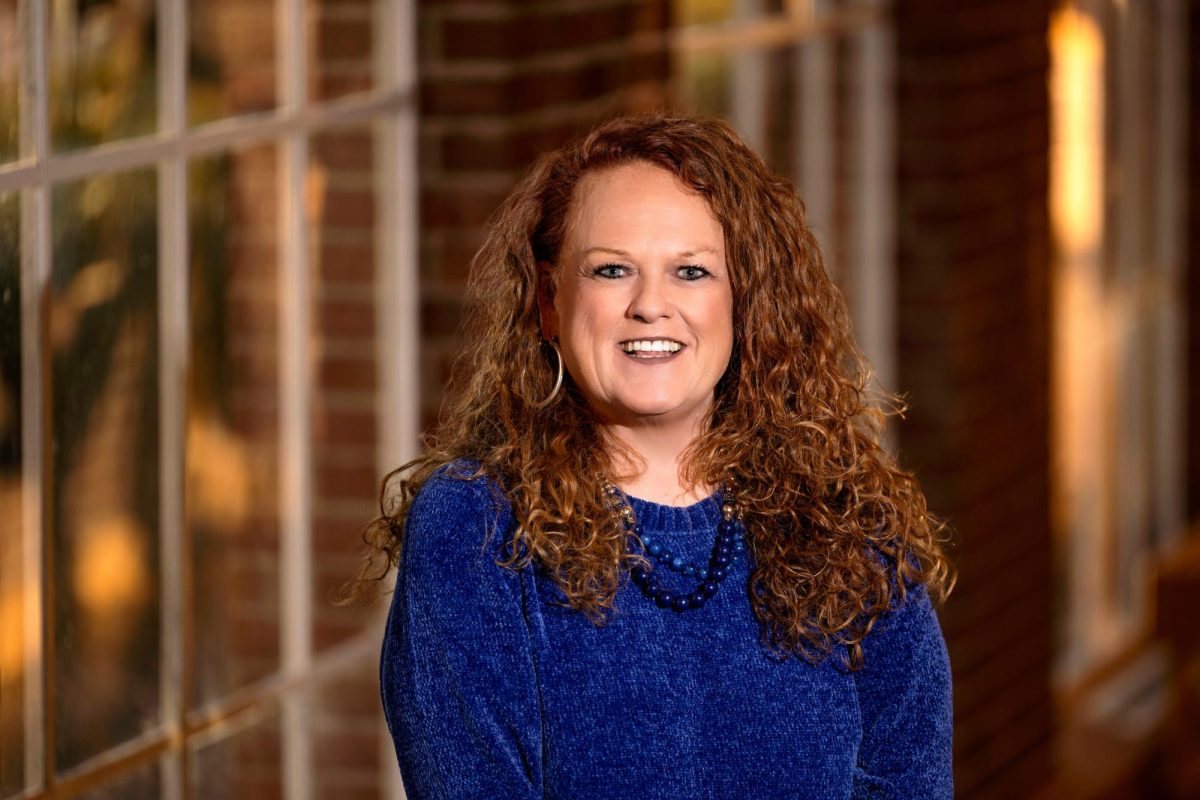
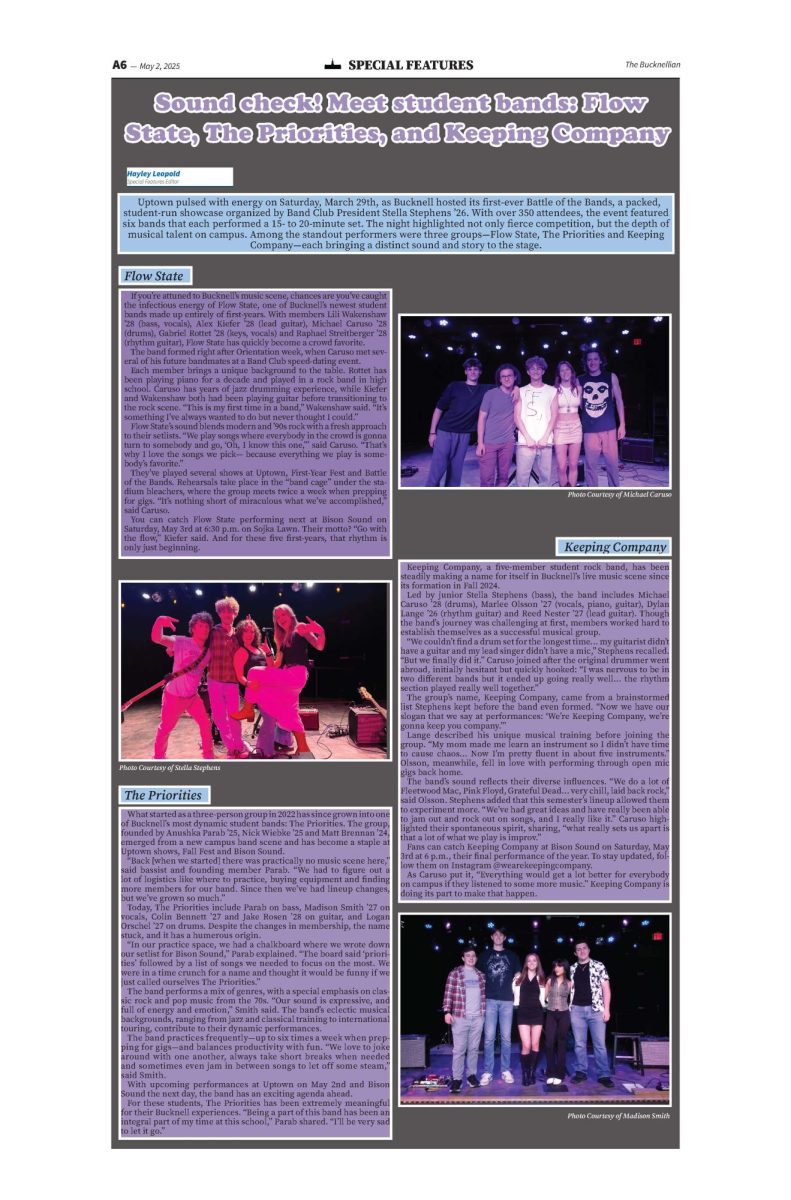
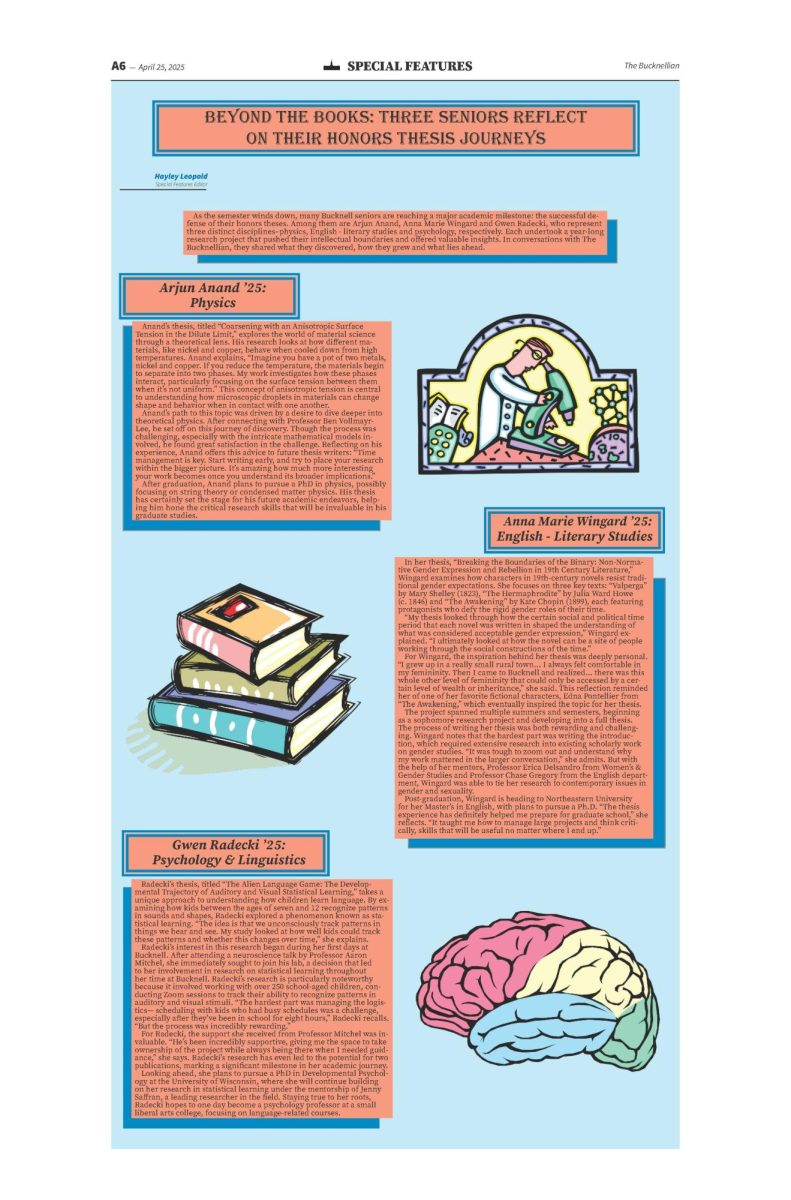
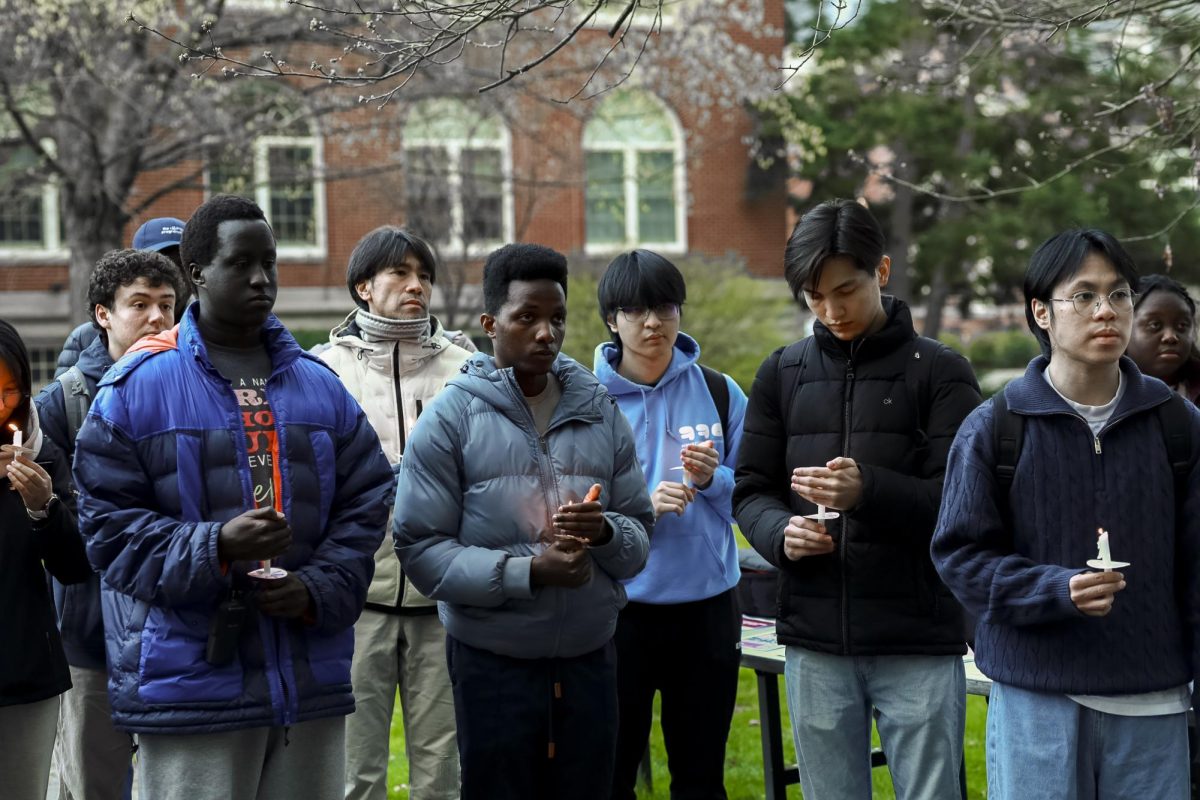
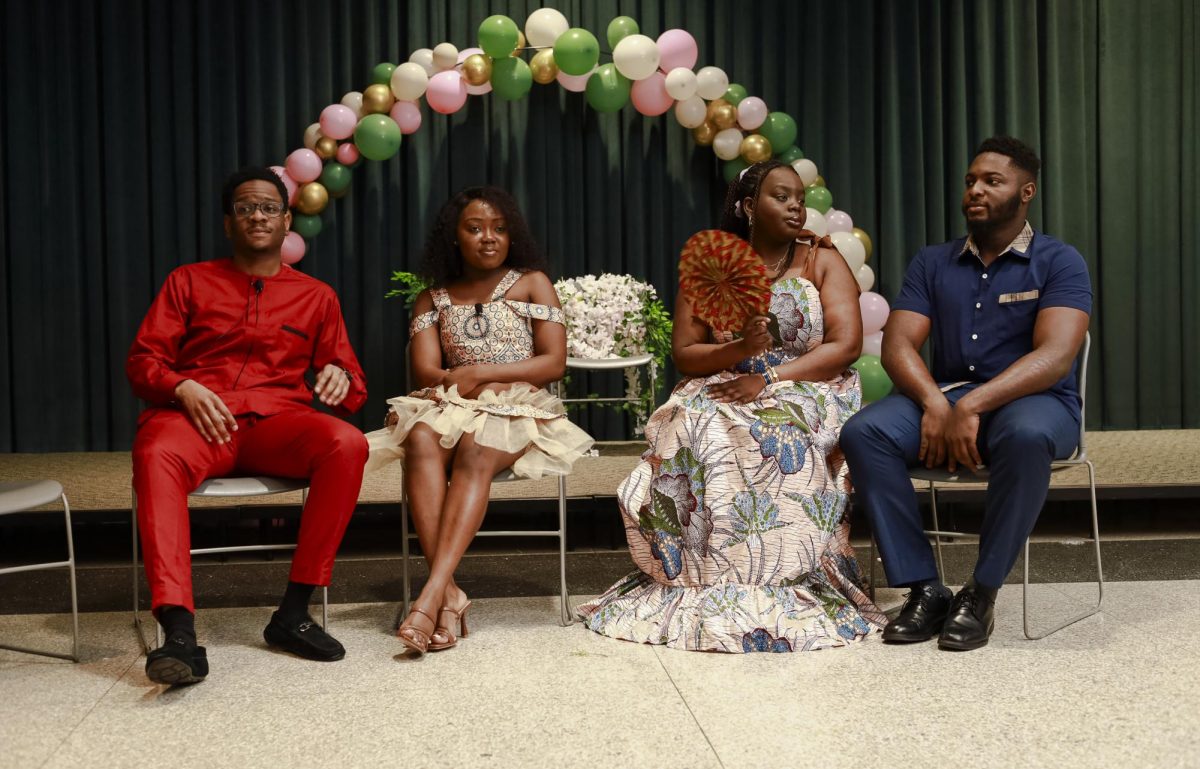
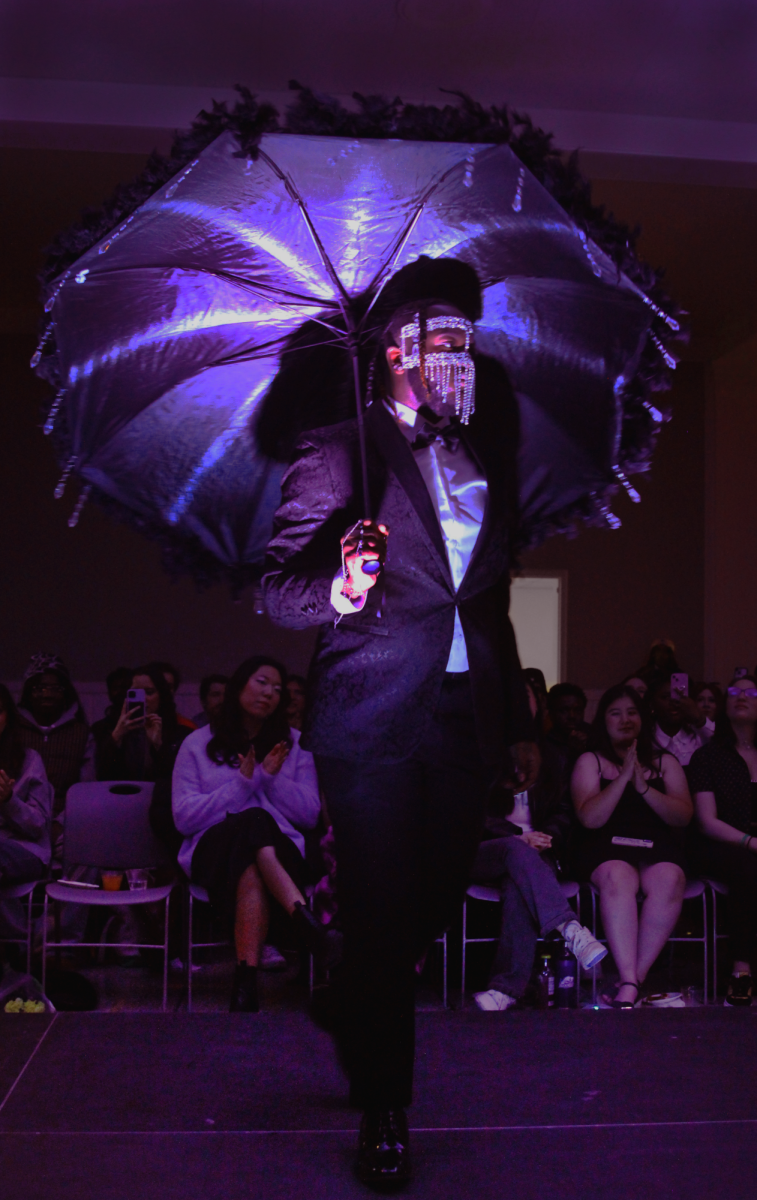
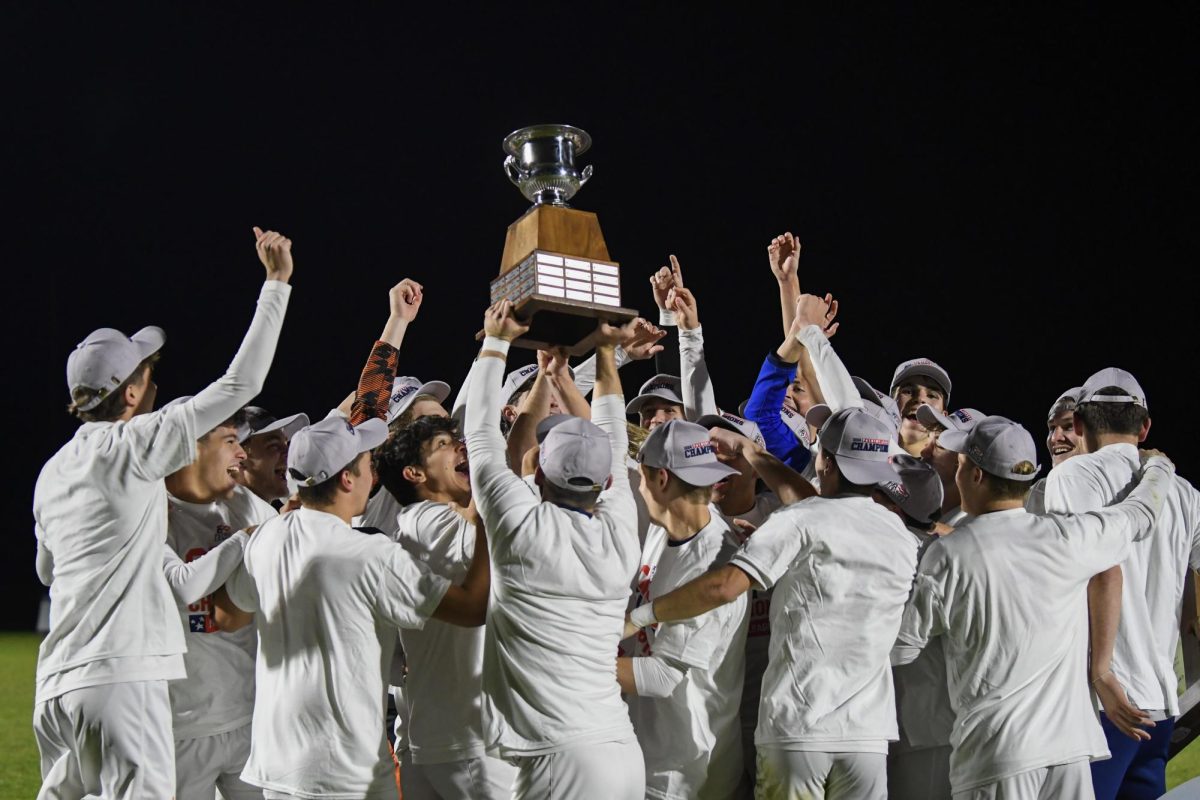
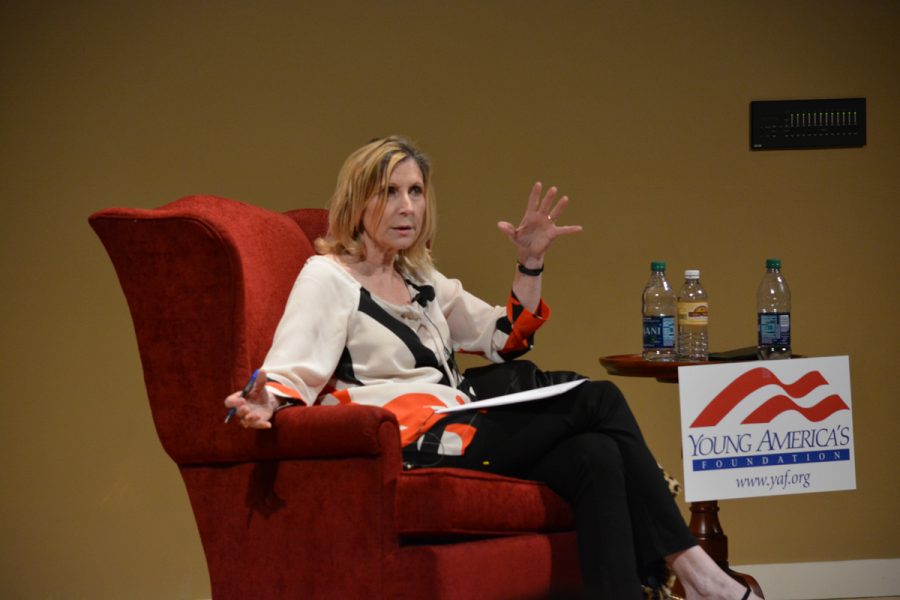

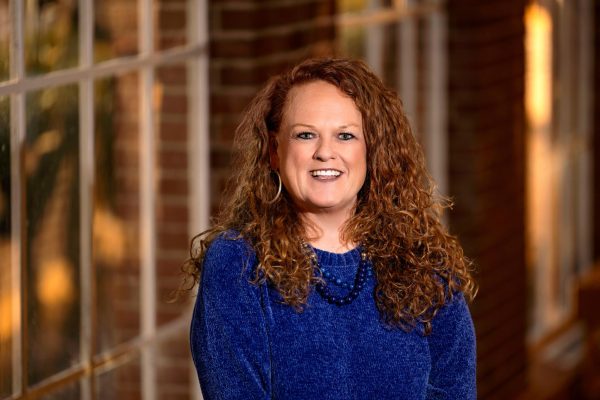

Jonathan • Feb 16, 2017 at 6:57 pm
Just for context, from somebody who attended the lecture, Tooba Ali’s claim that CHS reversed course and supported safe spaces is intellectually dishonest and patently false. The audience members who questioned CHS misconstrued the definition of a safe space, and at one point referred to a safe space as a space that “supports free speech,” to which CHS proclaimed her support for such a space. Of course, this is not what they usually mean when they advocate for safe spaces, and this level of incoherence was painstakingly evident during the Q&A session.
Jonathan • Feb 17, 2017 at 5:29 pm
If anyone’s interested, the full video of CHS’s lecture is on youtube, so you can listen for yourself and hear the questions that were actually asked.